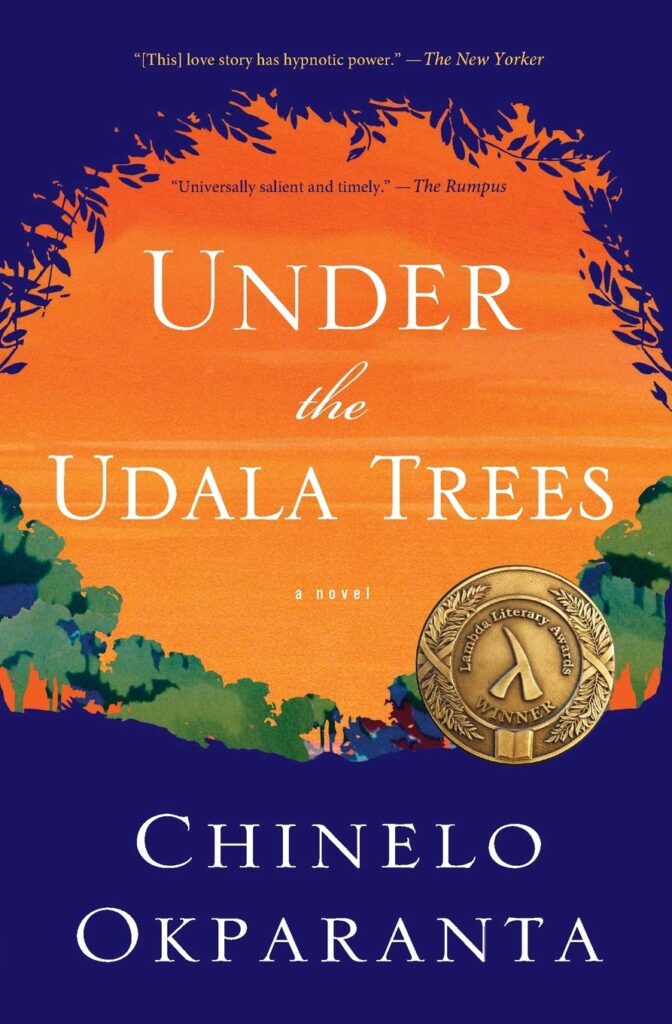Under the Udala Trees by Chinelo Okparanta
This book is a coming of age story of Ijeoma, narrated in the first person by an older and wiser version of herself. Ijeoma’s story is enveloped in the story of Nigeria, the young nation that was at the time also experiencing the turmoil of coming to age through a civil war. Ijeoma has a seemingly perfect life until ‘Ubosi chi ji ehihe jie: the day the night fell in the afternoon’, the day she loses her father. One thing leads to the next and eventually she finds herself doing housework for a rich couple. In her time with them she meets Amina, her first love.
“Legend has it that spirit children, tired of floating aimlessly between the world of the living and the dead, take to gathering above udala trees. In exchange for the dwelling, they cause to be exceptionally fertile any female who comes and stays, for even the briefest period of time, under any one of the trees. They cause her to bear sons and daughters, as many as her heart desires.”
– Chapter 77
Udala trees have always played a significant role in Ijeoma’s life. From her childhood days where she sits under one because of the orders of her classmate; to another tree being interwoven in the beginning of her love story with Amina; to nightmares in which the trees haunt her. The udala trees that are, as the above quote suggests, rather to be sought out by young aspiring wives become a symbol of oppression in Ijeoma’s life as she diverts from the ideal of a fertile wife of a man. Her plight against a culture that is senselessly oppressive to women and more so to homosexual women is shown in her story and in her relationship with her God.
Okparanta brings a new dimension to the debate of homosexuality in Africa. She does not take on the route of what was in the past, before Christianity where in some places on the continent homosexuality was permitted or even celebrated. Rather she takes the situation as it is, Nigeria being a Christian country. The book challenges homophobia justified by the church and makes a distinction between the church, which she calls a business, and God together with the bible. Okparanta uses Bible verses to support her claims and a god fearing main character to illustrate that homosexuality is not the straying away from God. Her arguments are so convincing that some reviewers have warned that this book may not be ideal for conservative Christians as they might feel attacked or offended by Okparanta’s interpretation of the bible.
This book is necessary for discussions on homosexuality in Nigeria and beyond as it creates room for homosexuality within Christianity and does not create a dichotomy between the two where acceptance of one necessarily means rejection of another.




